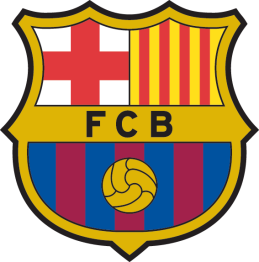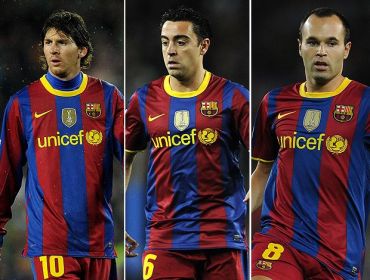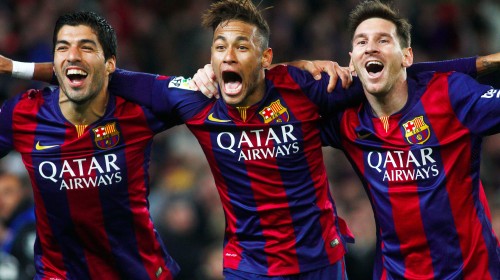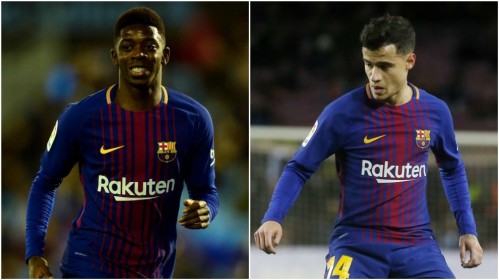“Money is secondary. Before anything else there should be principles, values. Barça has lost them.” Johan Cruyff – 2015

Rewind fifteen years; with Louis van Gaal licking his egotistical wounds following his mid-season sacking, a barely believable sixth-place finish in La Liga, a humiliating first-round exit from the Copa del Rey and dismal Champions League elimination at the quarter-final stage confirmed FC Barcelona’s worst campaign for more than a decade. The storm clouds gathering their fury around the Camp Nou demanded a wholesale revolution; incoming president Joan Laporta tasked with the unenviable mandate of transforming the club’s fortunes while inheriting an expensively-assembled, lavishly remunerated but undoubtedly underachieving squad, with no permanent manager and crippled with debt accrued from the financial excess of the previous regime.
A tumultuous summer saw Laporta encourage the return of the legendary Johan Cruyff and risk his reputation by appointing the well-regarded but inexperienced Dutch purist Frank Rijkaard as successor to the dour, pragmatic Louis van Gaal. But his emphasis towards the traditional core values of the club, placing enormous importance in preserving the club’s identity through youth development and committing massive investment to safeguarding the continued relevance of La Masia would become the lasting legacy of Laporta’s tenure. “Where our dreams become reality” beamed Laporta, a romantic sentiment that drew scoffing and derision from his detractors yet proved a glorious triumph when a staggering EIGHT graduates of La Masia started the European Champions League Final demolition of Man Utd in 2009. The influence of La Masia spread beyond the Camp Nou; Spain’s Euro 2008 and 2012 triumphs and their maiden FIFA World Cup victory in 2010 were heavily reliant upon the foundations of glorious blaugrana.
But it was far from plain sailing for Laporta’s Barca revival. A key promise of his election campaign was to sign English superstar David Beckham but an early snub saw Beckham unveiled as a Galactico in Madrid instead. Undeterred, Laporta turned to his second choice and Brazilian genius Ronaldinho would establish himself as a legend at the Camp Nou. Major surgery to the squad saw a disjointed team stutter in the early days, but Laporta urged the fans to support his vision and two La Liga titles and a European Champions League triumph followed in the first three years of Rijkaard’s stewardship. The departure of the Dutchman saw Laporta again risk his reputation by rejecting the overtures of one Jose Mourinho to instead place his faith in an untried Barcelona reserve team coach called Pep Guardiola. What followed was an era-defining revolution with Guardiola merging supreme style, metronomic passing, fluidity and interchangeable tactics, ferocious hunger, intensity and tempo all dancing to the La Masia heartbeat. The finest team of this and perhaps any generation. It may be scarcely believable but prior to Laporta’s tenure Barcelona had just one European Champions League/European Cup title to their name. In just six years Barca would add two further ECL titles during the majestic Pep Guardiola era and a third would arrive just one year after Laporta’s departure.

Former Nike executive Sandro Rosell succeeded Laporta in 2010 and Guardiola succumbed to the unique pressures of managing Barcelona just twelve months later. Johan Cruyff once referred to the internal mechanisations of the Camp Nou as a “rumbling volcano” and the fact that since 1945 just two coaches have lasted more than four years tells its own story. One, Cruyff himself, suffered a heart attack and the other, Frank Rijkaard, left the Camp Nou a broken shell of a man whose fledgling coaching career was dead and buried just five years later.
Rosell and his eventually successor Josep Bartomeu have turned their attentions primarily on exploiting Barcelona’s commercial revenues, arguably at the expense of the core principles at the heart of the club. It was always Real Madrid who stood as the soulless financial juggernaut of European football, their quest for expanding their commercial activities to maximise revenues relegating the actual sporting spectacle to a mere support act. Barcelona, conversely, were the entertainers, the artists, the football purists who would never compromise their style or their identity for financial gain. Real Madrid were more than a club, but in a sordid exploitative sense. Barcelona were Mes Que Un Club, a sanctuary to protect and preserve the traditions of the beautiful game. Since Bartomeu took over as president in 2014, his bold quest has been to push Barcelona towards the £1 billion mark in annual revenue. Football has unquestionably become a business first and a sport second and Bartomeu would argue his robust financial focus has enabled the club to compete in the multi-million pound transfer market, notably assembling the most feared attack in World football with Lionel Messi flanked by Luis Suarez and Neymar. But some critics would argue the hefty price of such commercial ambitions are too great and the once proud bastion of Catalan independence has become little more than a marketing tool for the money men.

On the pitch the relative stability of the Rijkaard and Guardiola years under Laporta have been replaced with a less cohesive and muddled hiring policy. In succeeding Guardiola, former assistant manager Tito Vilanova provided a sense of continuity; but the appointment of Gerard Martino – largely to appease Lionel Messi – and former player Luis Enrique saw a determinable shift in planning to prioritise the here-and-now over the progressive development and evolution of the La Masia ideology promoted under the previous regime. Earlier this season Valverde fielded a starting-XI entirely absent of any La Masia graduate for the first time since 2002. Since Guardiola departed for pastures new in 2011, only Sergio Roberto has emerged from the academy to genuinely establish himself as a first-team squad player. And more often than not as an auxiliary full-back rather than in his preferred midfield position. Debuts have been awarded, but promising youngsters such as Rafinha, Sergei Samper, Munir, Cristian Tello have either been farmed out on ill-conceived loan deals or permanently transferred away from Barcelona while the others have simply failed to make the grade.
And therein lies another undeniable problem with the current Barcelona. Their recent record in the transfer market has been little short of abysmal. The acrimonious departure of Neymar was a crushing blow that demanded a major statement of intent to appease the fans, to rebalance the team and to ensure the club’s status as one of, if not the biggest clubs in the World. To lose one of your crown jewels to, in comparison, a relative upstart on the European stage with a fraction of the tradition and pedigree of Barcelona registers as a seismic shock. Ask yourself this question; when was the last time Real Madrid lost a player they did not fully want to be rid of?
The inflated acquisition of Ousmane Dembele for £103.5M (rising to £135M) was a reasonable, if overpriced, signing but despite his potential Dembele has neither the profile nor the reputation of Neymar. And the very real possibility of Neymar turning up at the Bernabeu, if not this summer then certainly in 2019, would land a significant blow to the tender area of Barcelona’s soul. Barca also pursued and eventually snared Brazilian maestro Philippe Coutinho from Liverpool for another huge initial outlay of £108M. Again nobody would doubt Coutinho’s outstanding form for Liverpool and his potential to develop further but there seems a degree of confusion in the acquisition for £200M+ of two players more of potential than the finished article and moreover who both play in the same position?! Compare those acquisitions of undoubted potential with the ready-made superstar signings secured under Laporta’s presidency; Ronaldinho, Samuel Eto’o, Zlatan Ibrahimovic, Thierry Henry and David Villa.

The rabble of signings to accompany these mega deals are an embarrassing mix of expensive failures or signings made presumably out of sheer desperation; £36M to recruit former Spurs failure and Chinese Super League wasteland wanderer Paulinho, £30M on the bang-average Andre Gomes, £30M on Paco Alcacer, £15M on PSG’s reserve full-back Lucas Digne and the return of former-La Masia golden boys Gerard Deulofeu and Denis Suarez with neither remotely capable of challenging for a regular first-team position.
But this recruitment decline is not limited to the first-team. When Johan Cruyff breathed new life into La Masia his pioneering philosophy was to promote technical prowess over physical dominance. Smaller players such as Xavi and Andres Iniesta emerged as testament to Cruyff’s belief that, “if you’re good enough to play, you can play.” But nowadays La Masia must plead guilty to the charge of shifting its focus to the physical attributes of strength and power, while contradictorily still trying to coach the Barcelona way. It is a conflict that serves nobody’s ideal and there can be no more scathing assessment of La Masia’s current malaise and shortcomings that not a single prospect within its fabled structure is deemed worthy of a chance ahead of Paulinho or Alcacer? Not even the more traditional graduates such as Samper or Munir? The ‘old’ Barcelona would’ve shown faith in them….
Josep Bartomeu’s presidency is due to run until 2021. But his term could be curtailed by impending legal action relating to the dubious financial details surrounding the signing of Neymar back in 2014. And with Ernesto Valverde’s team on the verge of another La Liga/Copa del Rey double – and the very real possibility of completing an entire league season undefeated – the club are hardly wallowing in the doldrums. It is easy to forget but Barcelona completed a La Liga/Copa del Rey/European Champions League treble as recently as 2015 under the guidance of Luis Enrique. Respected journalist Guillem Balague has branded this Barcelona team the worst in a decade; and while in aesthetical terms he could be correct the results, at least domestically, are still as strong as ever. But Valverde will be fortunate to survive the disastrous European Champions League elimination at the hands of AS Roma – despite taking a 4-1 first-leg lead to the Stadio Olimpico – and there are rumblings of discontent among the 180,000+ club membership. The devastating loss of Neymar to PSG, the botched renegotiation of Lionel Messi’s contract, a perceived dilution of the club’s treasured identity and philosophies, its values and its traditions – notably the commercial necessity but historical sacrilege of sponsorship emblazoned across the famous jersey, the failure to secure primary transfer targets, the stagnation of La Masia and a functional style of play that reminisces only sporadically of Pep Guardiola’s tiki-taka maestros. Add to the equation the fact that Real Madrid stand on the brink of an unprecedented third-successive European Champions League triumph – their fourth in the last five years – and the brewing storm clouds enveloping the Camp Nou and Bartomeu are understandable.
Rumours persist that former presidential candidate Augusti Benedito is close to securing the necessary support to motion a vote of no confidence against Bartomeu, which would trigger new elections somewhat sooner than 2021. But an intriguing development has seen the return to the fore of Joan Laporta. Laporta’s tenure is still revered across Catalonia and there appears significant momentum to encourage his future candidacy. For some supporters, Laporta would provide the perfect ‘step backwards to move forwards’ antidote to reverse Barcelona’s disturbing traits of morphing into the Real Madrid model that they so despise. It is perhaps not quite that drastic, but the next presidential elections could become a pivotal battle for the traditions, the heritage, the culture, indeed the very identity and soul of FC Barcelona….
